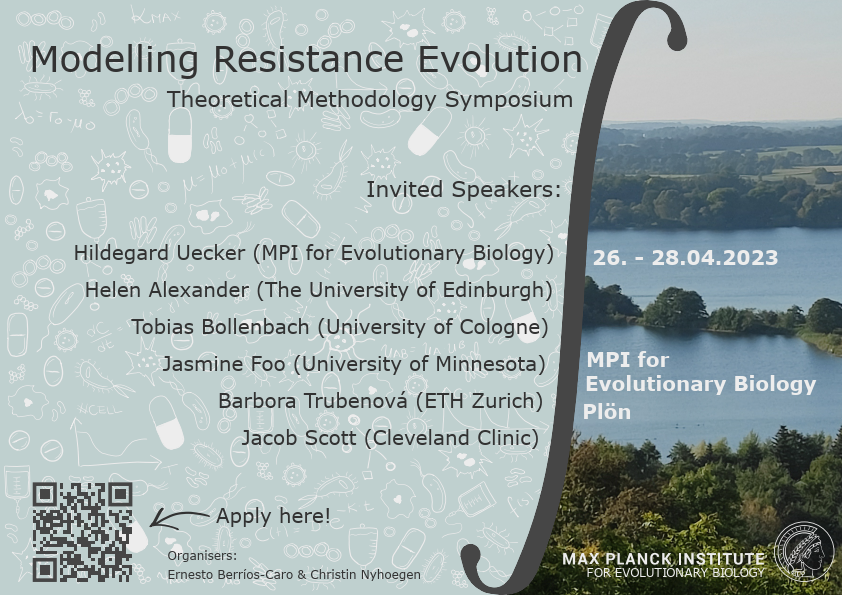Speaker
Description
The evolution of drug resistance in infectious disease and cancer is a serious threat to public health. The mutant selection window (MSW), defined as the range of drug concentrations that selects for a drug resistant strain, has previously been used as a model to predict and avoid resistance. Under the MSW paradigm, drug regimens should be designed to minimize time spent in the MSW. A limitation of the MSW model is that it only offers comparisons between two strains at a time-- i.e. between drug sensitive and drug resistant strains. In contrast, fitness seascapes, which we model as collections of genotype-specific dose-response curves, provide comparisons between many genotypes simultaneously. Furthermore, previous work has shown that MSW comparisons are intrinsically embedded in fitness seascapes. Here, we explore the consequences of modeling evolution with fitness seascapes through the lens of the MSW framework. First, we show how an N-allele fitness seascape embeds N*2N mutant selection window comparisons. Then, we develop mathematical models for drug pharmacokinetics in three clinically-relevant scenarios: serum drug concentration during a daily dosing regimen and drug diffusion in tissue in 1- and 2-dimensions. Each scenario reveals the presence of heterogeneous mutant selection windows. Importantly, we find that different MSWs arise at different times in a treatment regimen, and multiple MSWs appear simultaneously at different points in space. While prior work has analyzed the importance of time spent in a MSW, we argue that both time and space occupied by a MSW impact the probability of drug resistance. This work further explores the connection between mutant selection windows and fitness seascapes using realistic pharmacokinetic and drug diffusion models. Our results highlight the importance of fitness seascapes in modeling evolution when drug concentration varies in time and space. Furthermore, because of the multiplicity of mutant selection window comparisons in a single fitness seascape, this work suggests that two-state mutant selection window models may not be sufficient to predict or control the evolution of drug resistance.

